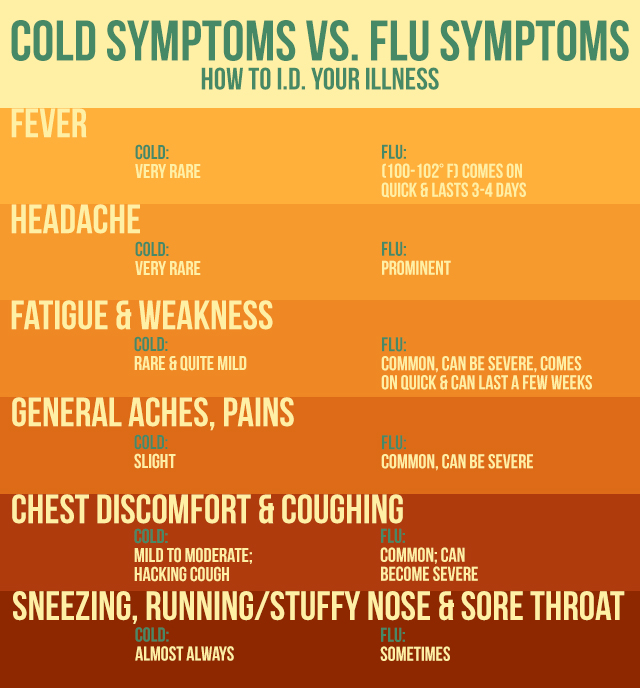Influenza (flu) is a potentially life threatening illness and contagious disease of the respiratory tract caused by a virus. Each year, influenza causes serious infection and death around the globe, usually in the winter months (seasonal influenza).
Take Preventative Steps for Flu Season Now
Flu can lead to hospitalization and sometimes even death. Every flu season is different, and influenza infection can affect people differently. Even healthy people can get very sick from the flu and spread it to others. Over a period of 31 seasons between 1976 and 2007, estimates of flu-associated deaths in the United States ranged from a low of about 3,000 to a high of about 49,000 people. During a regular flu season, about 90 percent of deaths occur in people 65 years and older. Thanks to vaccinations, we’ve seen those numbers begin to dwindle over the past several years.
The “seasonal flu season” in the United States can begin as early as October and last as late as May. During this time, flu viruses are circulating in the population. An annual seasonal flu vaccine (either the flu shot or the nasal-spray flu vaccine) is the best way to reduce the chances that you will get seasonal flu and spreading it to others. When more people get vaccinated against the flu, less flu can spread through that community.
How the Flu Vaccine Works
Flu vaccines cause antibodies to develop in the body about two weeks after vaccination. These antibodies provide protection against infection with the viruses that are in the vaccine.
The seasonal flu vaccine protects against the influenza viruses that research indicates will be most common during the upcoming season. Traditional flu vaccines (trivalent vaccines) protect against three flu viruses; an influenza A (H1N1) virus, an influenza A (H3N2) virus, and an influenza B virus. In addition, this season, there are flu vaccines to protect against four flu viruses (called “quadrivalent” vaccines). These vaccines protect against the same viruses as the trivalent vaccine as well as an additional B virus. There are several flu vaccination options available for the 2014-2015 season, but the Center for Disease Control does not recommend one over the other. If you have questions regarding the different types of vaccines, please do not hesitate to contact Dr. Brashear and our knowledgeable medical team.
When Should I Get Vaccinated for the Flu?

Flu vaccination should begin soon after vaccine becomes available, ideally by October. However, as long as flu viruses are circulating, vaccination will continue to be available throughout the flu season, even in January or later. While seasonal influenza outbreaks can happen as early as October, most of the time influenza activity peaks in January or later. Since it takes about two weeks after vaccination for antibodies to develop in the body that protect against influenza virus infection, it is best that people get vaccinated so they are protected before influenza begins spreading in their community.
Private manufacturers produce flu vaccine, so availability depends on when production is completed. Shipments begins in late July and August and will continue throughout September and October until all vaccine is distributed.
Symptoms of the Flu

Do you know what the common symptoms are for the flu and how to differentiate them from the common cold? While it’s true that they share many of the same symptoms, there is a difference! Knowing how to distinguish between the two can significantly help decrease your chances of becoming ill by knowing when to receive proper treatment for you ailments. Flu symptoms are usually more severe than cold symptoms and come on quickly. Symptoms of flu include sore throat, fever, headache, muscle aches and soreness, congestion, and cough. Swine flu, in particular, is also associated with vomiting and diarrhea.
Most flu symptoms gradually improve over two to five days, but it’s not uncommon to feel uncomfortable for a week or even longer. A common complication of the flu is pneumonia, particularly in the young, elderly, or people with lung or heart problems. If you notice shortness of breath, let your doctor know. Another common sign of pneumonia is fever that comes back after having going away for a day or two.
Just like cold viruses, flu viruses enter your body through the mucous membranes of the nose, eyes, or mouth. Every time you touch your hand to one of these areas, you could be infecting yourself with a virus, which makes it very important to keep hands germ-free with frequent washing to prevent both flu and cold symptoms.
Where Can I Get My Flu Vaccine?
Here at Brashear Family Medical we strongly believe in vaccinations to help ward off infectious diseases in both adults and children. Vaccines are the #1 preventative measures you can make to stay healthy! We offer many common vaccinations including the flu vaccine. If you have any questions regarding the flu vaccine or if you would like to schedule an appointment with us, contact our friendly and knowledgeable staff

